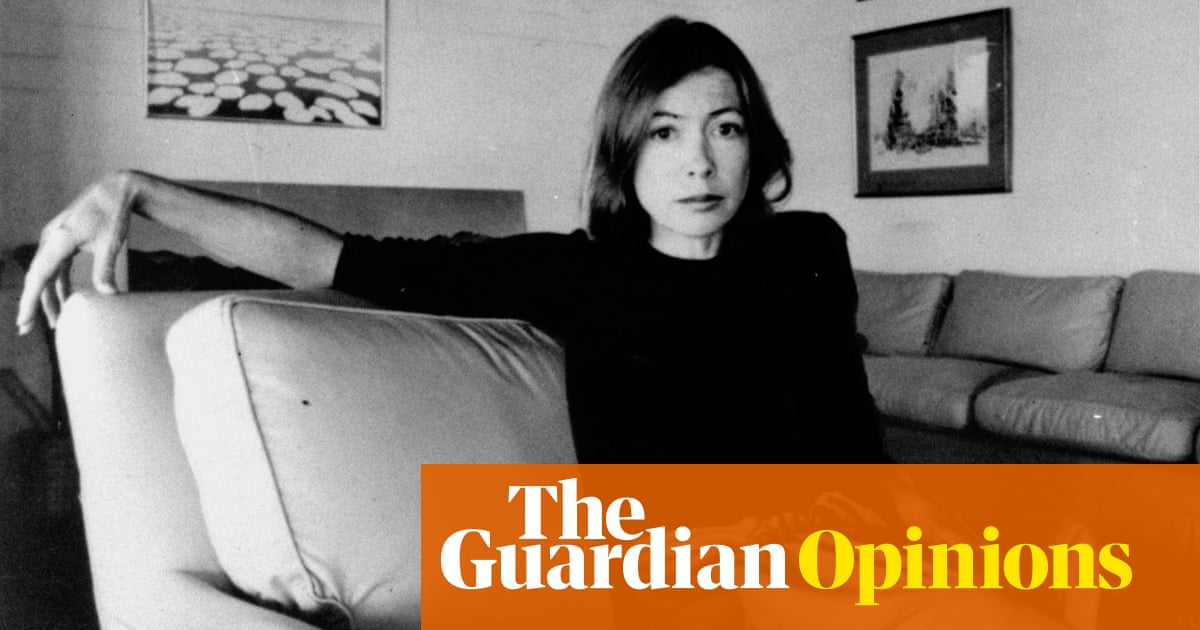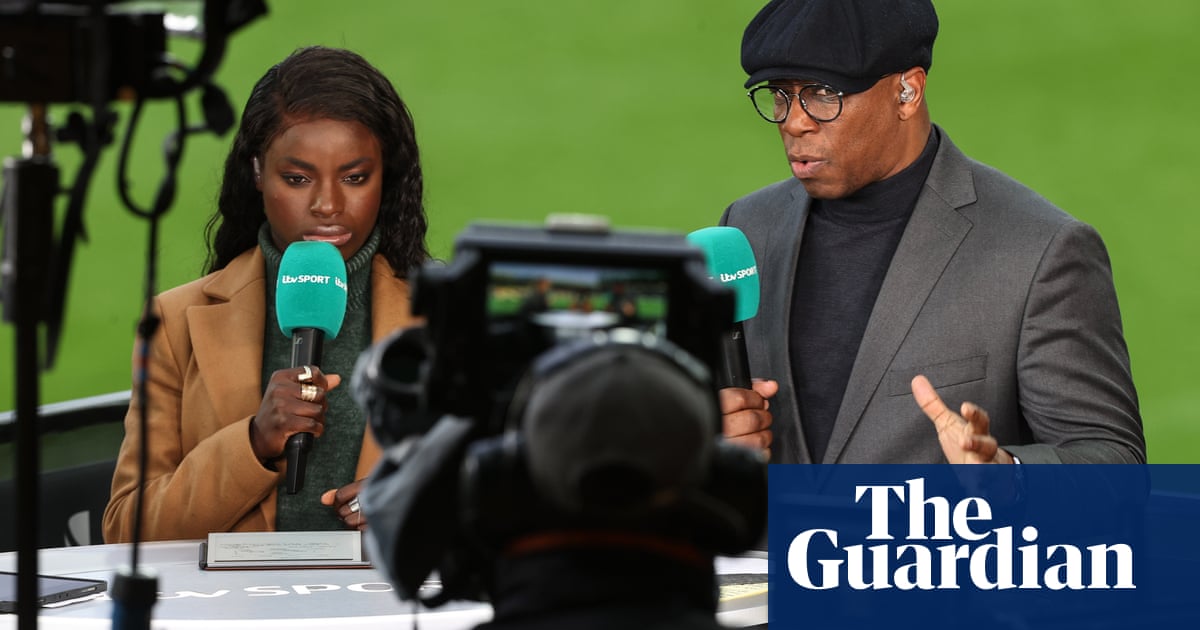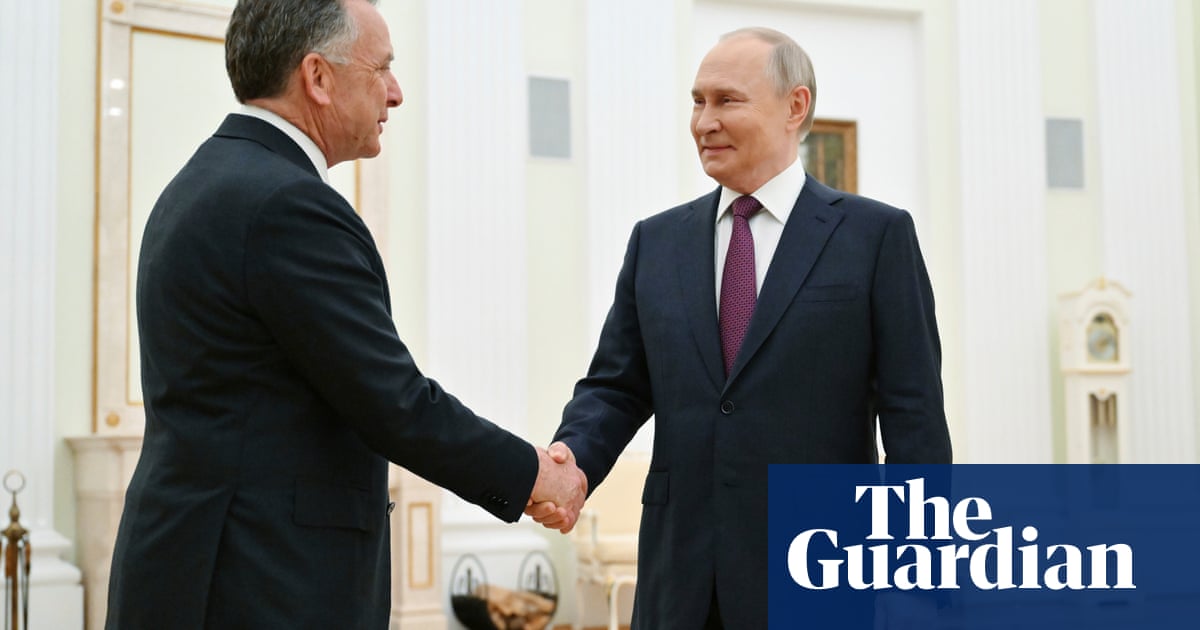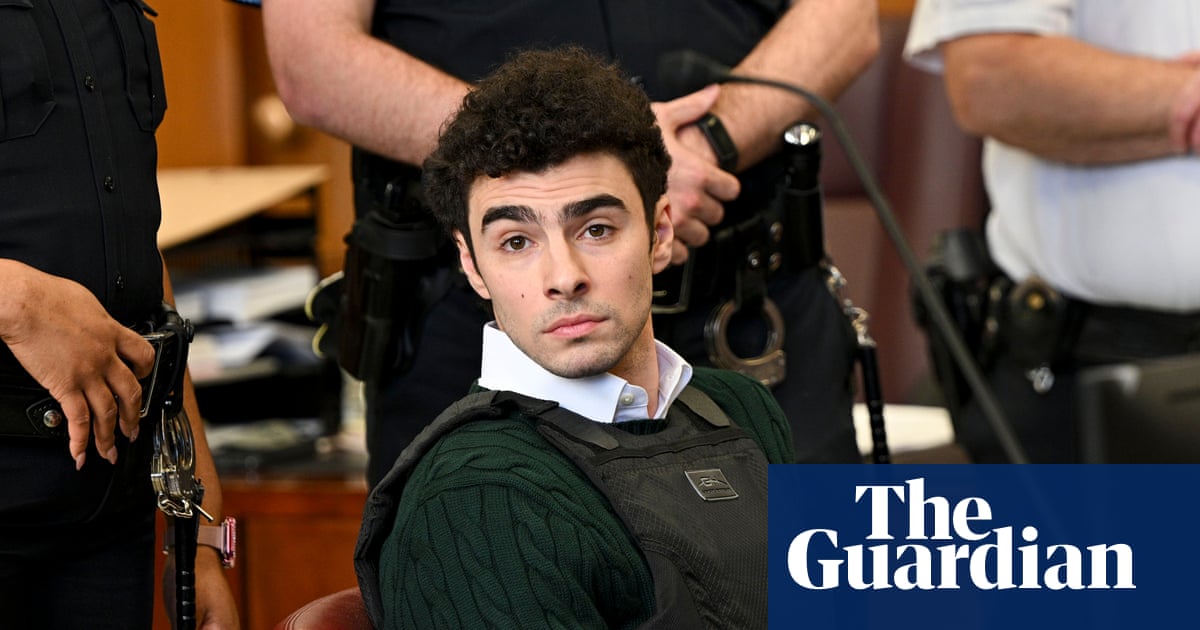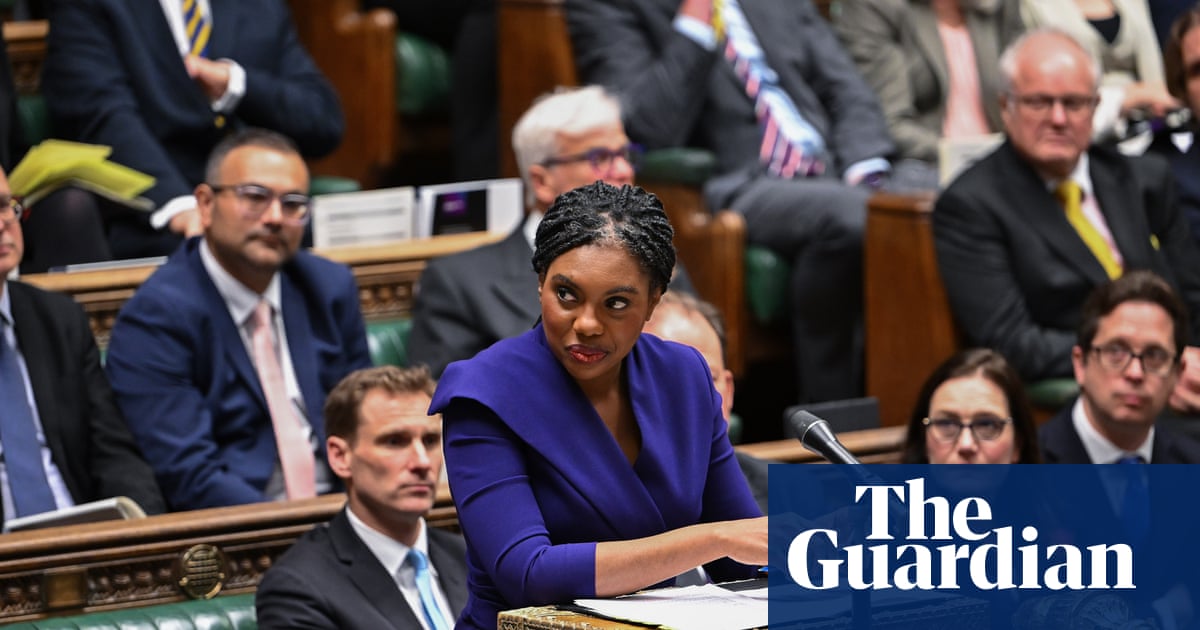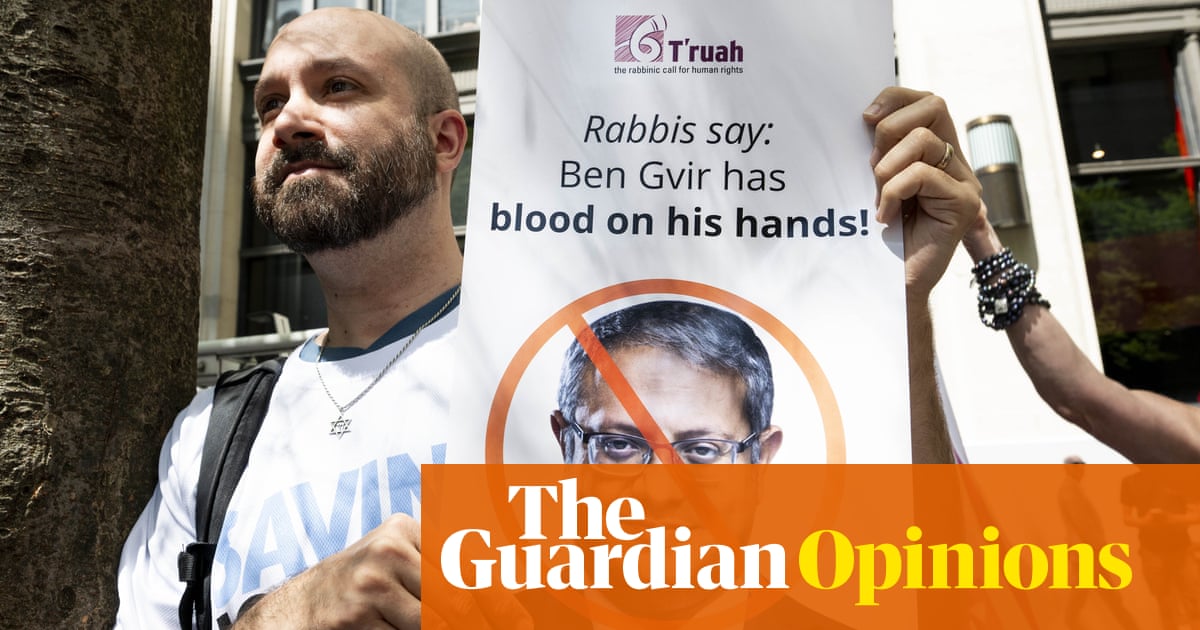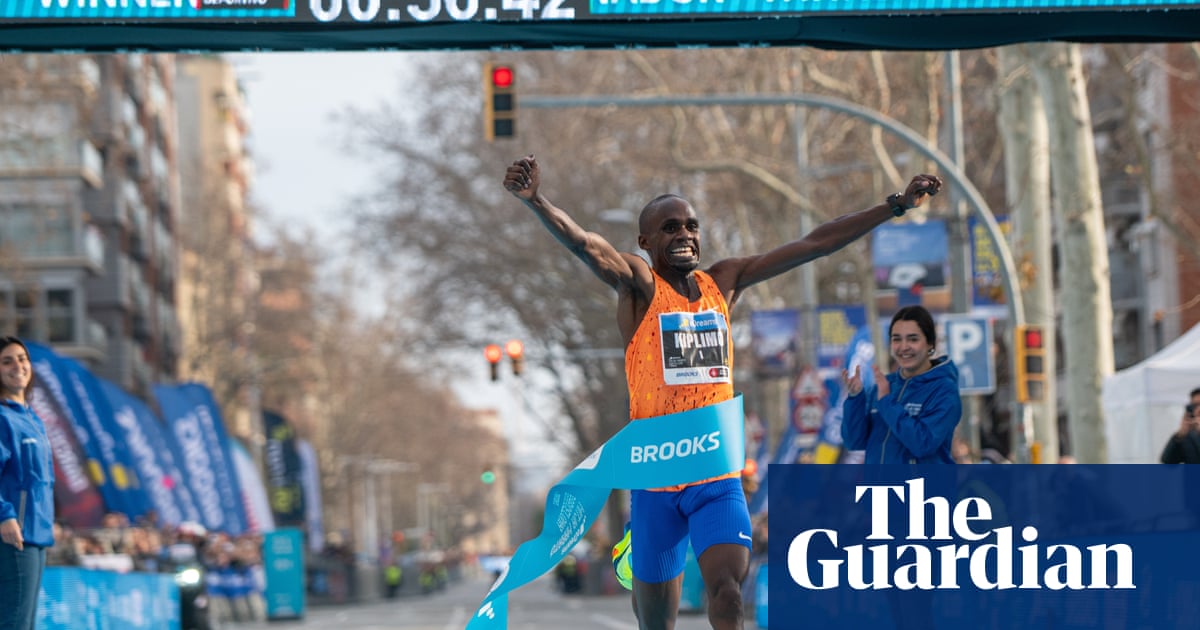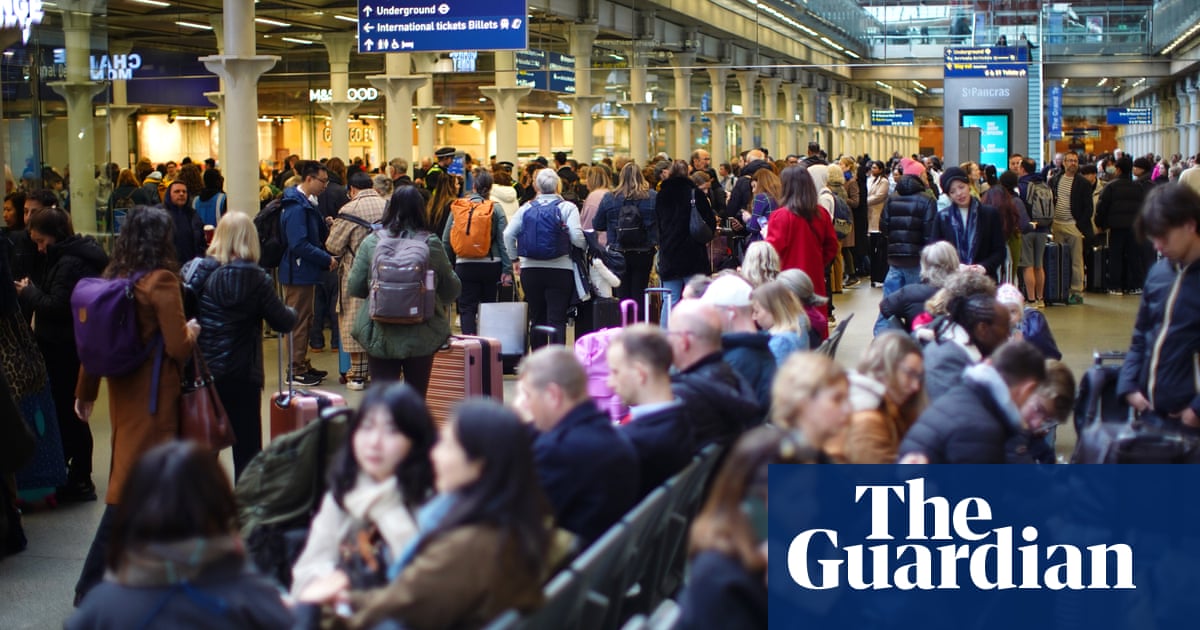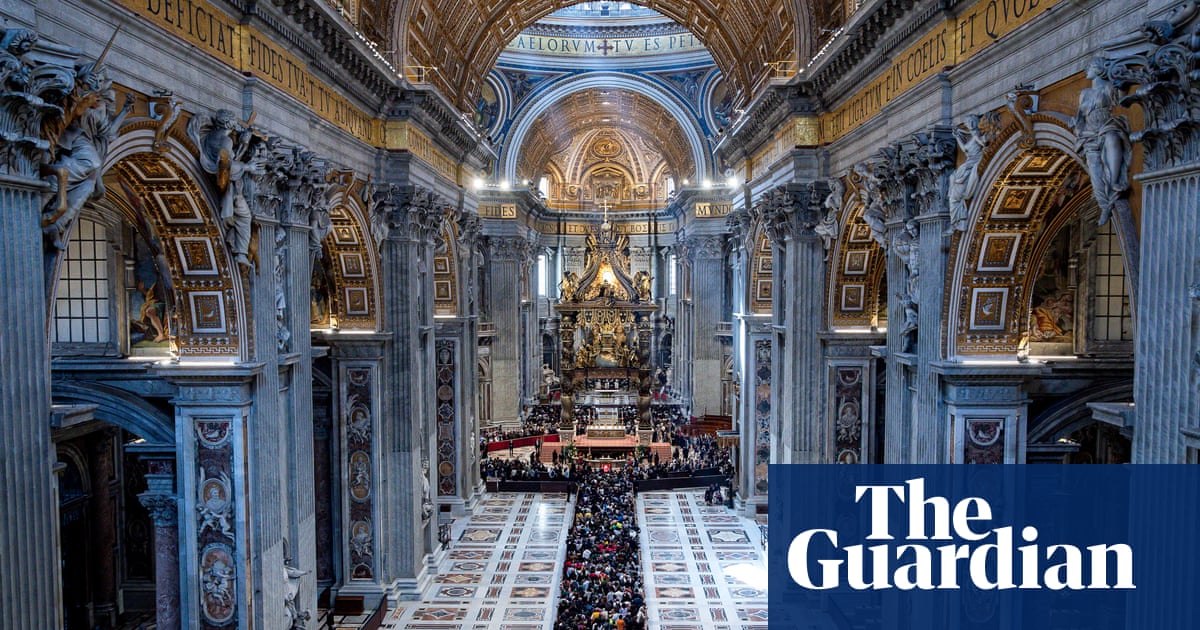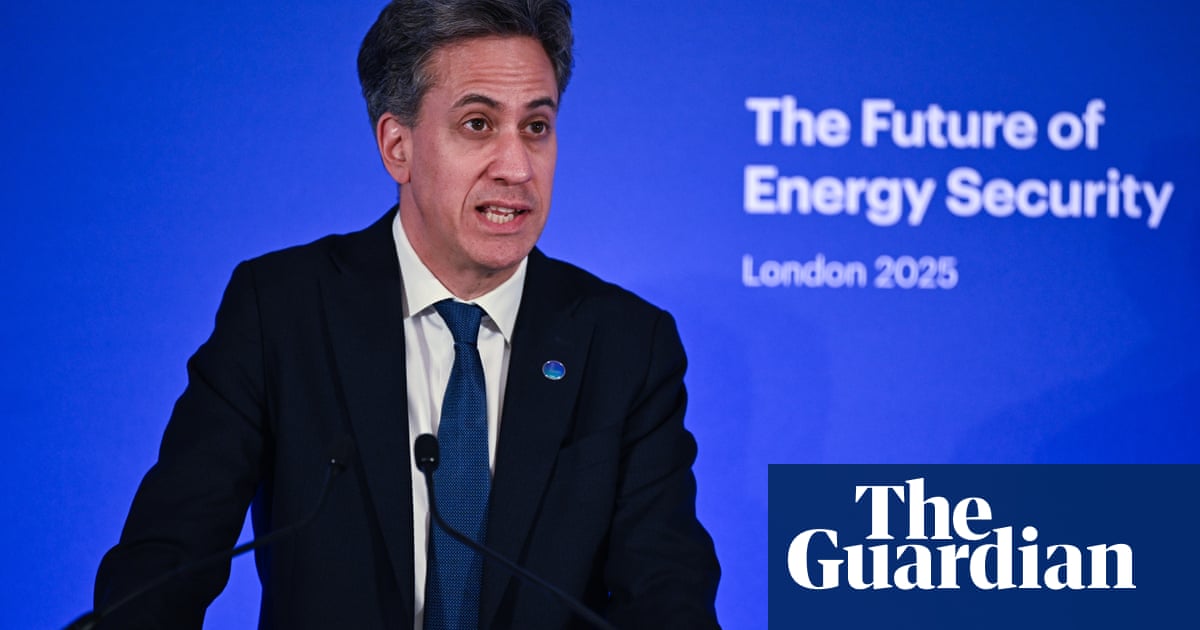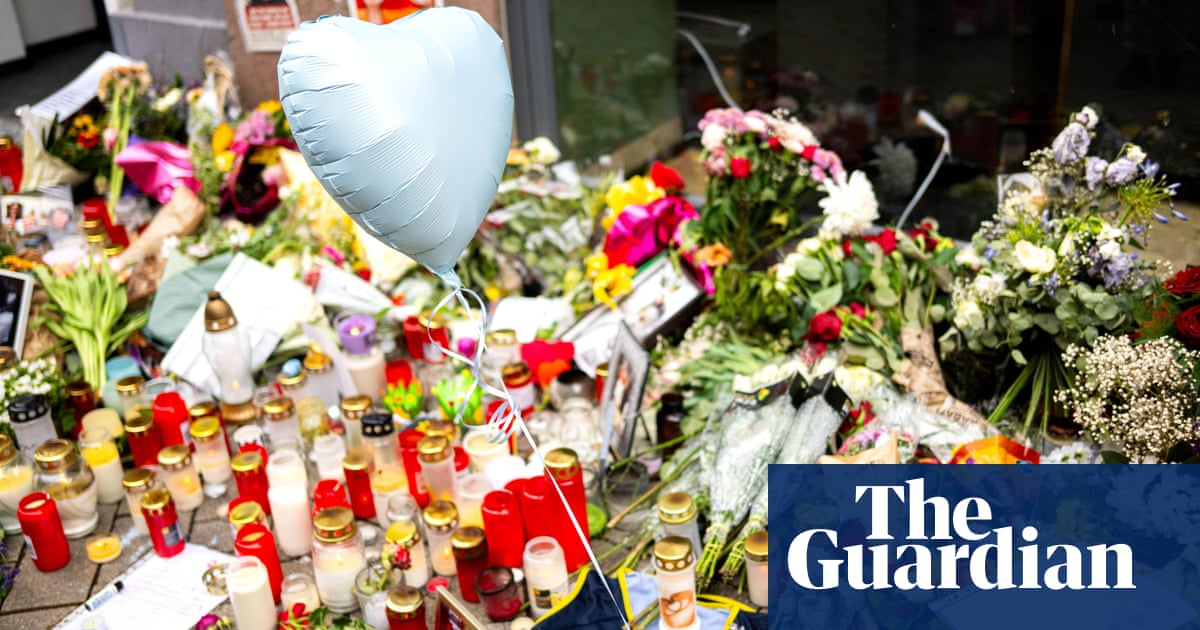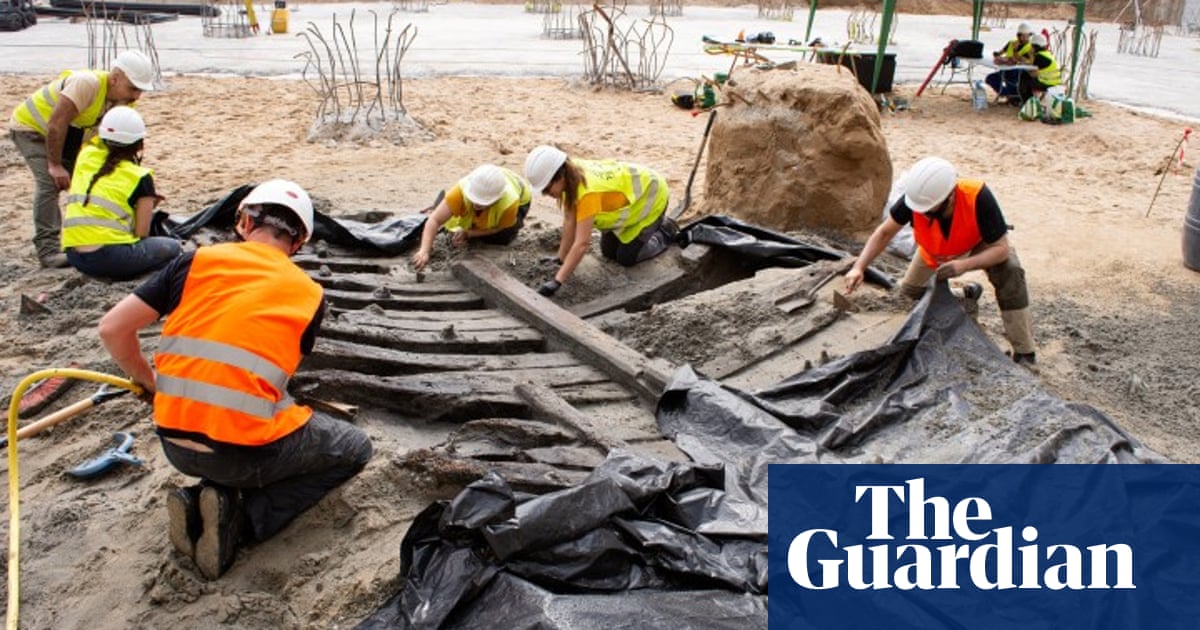Few days speak so profoundly to the soul of Israel than Holocaust Memorial Day. As the country sat in silence on Thursday to remember six million Jews exterminated by the Nazis, the same refrain was, as always, repeated by many: never again.
But for some across Israel, as the war in Gaza continues to ravage the Palestinian people and wipe out entire families, never again had come to hold another meaning.
As the country’s most powerful politicians, including the prime minister, Benjamin Netanyahu, attended a ceremony on Thursday morning at Yad Vashem, the Holocaust memorial in Jerusalem, three Holocaust survivors in their 80s stood at the entrance holding a sign aloft: “If we have lost our compassion for the other, we have lost our humanity.”
About 40 miles (64km) away in a square in central Tel Aviv, thousands, including descendants of Holocaust survivors, stood holding photos of Palestinian children who had been killed since the war began. Dozens more lined the roads of the city dressed in black, holding out empty pots to symbolise the starvation of those in Gaza.
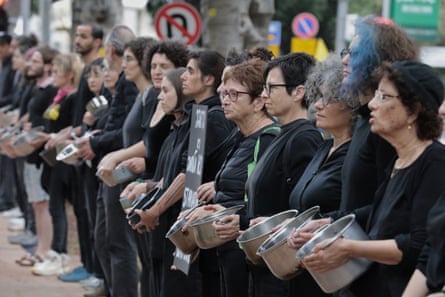
In recent months, particularly since the ceasefire between Hamas and Israel collapsed in March, the country has been rocked by protests. These demonstrations have loudly called for an end to the war in the name of saving the remaining Israeli hostages left in Gaza, 24 who are still believed to be alive, and to bring back the bodies of the 35 dead. Yet starkly absent has been mention of the suffering and devastation being brought upon the civilians of Gaza by Israel’s relentless onslaught.
Over 51,000 people have been killed in Gaza since the ground and air assault began on 8 October 2023 after Hamas’s deadly attack on Israel the day before. Almost 2,000 Palestinians have been killed since the war resumed in March. The Gaza health ministry, which counts the dead, does not distinguish between civilians and combatants, but more than half of those killed have been women and children.
For many in Israel, the horrors inflicted in the 7 October 2023 attack, when thousands of Hamas militants stormed kibbutzes, towns and cities in southern Israel and committed terrible atrocities, killing more than 1,200 people, and taking 251 hostages, including a nine-month-old baby, have left them cold to the plight of any Palestinian – particularly while hostages remain captive in Gaza.
As tens of thousands of Israelis have been called up to serve, many currently have family members on the frontlines. Meanwhile, the human ordeal of Gaza is largely absent from mainstream Israeli media. To some, the Hamas attack proved that as long as Palestinians remain in Gaza, Israel will never be safe.
Yet a small but growing number of voices within Israel have begun to push back, calling for an end to the war both to save the hostages and stop the massacre of human life in Gaza. A growing number of letters written by army and air force reservists, retired and even serving officers, have demanded the government end the war, not only in the name of Israeli lives but also innocent civilians in Gaza.
Veronika Cohen, 80, a Holocaust survivor who was born in the ghetto in Budapest, said she had come to protest outside Yad Vashem on the day of remembrance because: “I don’t think we can remember our suffering without acknowledging the suffering of Gaza, the deaths of tens of thousands of children, the starvation that’s going on this minute, for which we are partially responsible. It occupies the same place in my heart.”

She acknowledged that she was in the minority in Israel when it came to speaking up about the terrible cost of the war to Palestinian life. “People here see Palestinians as the other and that’s why they have created a barrier,” she said. “They have managed not to feel their pain and I find that incomprehensible. To me, when I read the stories of their suffering in Gaza, it blends completely into how I feel about the Holocaust.”
Cohen’s eyes filled with tears as she recalled seeing a recent photo of a young Palestinian boy whose arms had been blown off by Israeli missile strikes in Gaza. “The news story said that when he woke up from his operation, the first thing he did was turn to his mother, and he said: ‘how will I hug you now?’ To me, that’s a Holocaust story. And that’s why we are here: to try to awaken people to their pain in any way we can.”
Ruth Vleeschhouwer Falak, 89, who survived the Nazi-occupation of the Netherlands as a child, said she was standing there because “in the 1930s, if Germans had stood up loudly against the Nazi party, maybe they wouldn’t have been able to do what they did to us. Speaking up is not a choice for me.”
“The saying is never again; that means never again for anybody. That’s really what we’re standing here for,” added Ilana Drukker Tokotin, 87, who spent her childhood in hiding from the Nazis.
Yet the few who have tried to bring the voice of Gaza into the anti-war protests have regularly faced fierce resistance, if not outright violence, from police. After the death of more than 500 children in Gaza in the past month alone, Standing Together, a progressive movement of Israelis and Palestinians, decided to hold an anti-war protest on Holocaust Memorial Day that was primarily dedicated to the children who had been needlessly killed by Israel in Gaza as well as the Israeli hostages still held captive.
Yet after applying for permission, police told the group they were banned from holding up posters of children killed in Gaza and certain phrases such as “ethnic cleansing” were also forbidden. It was not the first time activists had faced such pushback; at other protests, police have regularly confiscated any posters bearing the faces of Gaza’s killed women and children or used force to break them up.
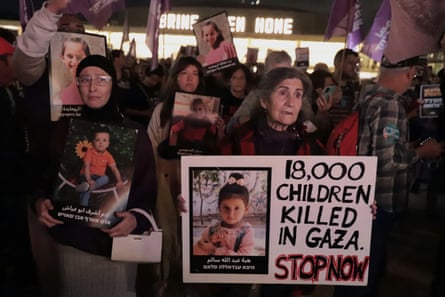
“There was nothing new about this attempt to silence any mention of Gaza – the only difference this time was that the police foolishly put it in writing,” said Alon-Lee Green, the co-director of Standing Together. The group not only successfully challenged the ban in court but also then began taking donations to put the photos of Gaza’s child victims of the war on posters and bus stops across central Israel, with almost 200 and counting.
“There has been a complete unwillingness among many here to engage with the human cost of the war in Gaza, even anger to anyone who expresses empathy for Palestinians, but I think after the government restarted the war, something is beginning to shift,” said Green. “This killing is done on the land we share and by our own hands. How can we ignore that any longer?”
On Thursday night, in the same square where the hostage protests have been taking place for months, thousands gathered to hold photographs of children in Gaza aloft; chubby-cheeked babies, giggling toddlers and whole families of siblings clutching each other’s hands at they sat in their best outfits, all killed in the past 18 months.
“It’s unbearable to see the faces of these children, who are no different to my children, who were killed by us,” said Noa First, 46, an artist who attended the protest, clutching a photo of baby girl D’na Khatib. “My grandparents fled the Holocaust in Germany, I’m so glad they are not alive on this remembrance day to see what Israel has become.”
However, there have also been visceral and hostile responses to these protests, speaking to the complexity of speaking out in the current environment. As Thursday’s demonstration took place, a far-right group gathered to shout through a megaphone: “Put down your bullshit signs. Those are the new Nazis on the other side of the border.”
As around 50 people gathered in Tel Aviv to stand silently in a line holding empty saucepans to protest at Israel’s ongoing aid blockade on Gaza – which has prevented all food, water and medicines going into the Palestinian territory for more than 50 days – they were met with indifference and anger. “Traitors,” screamed one man loudly at them, while another cursed loudly at the protest. “You should all be in Gaza,” he shouted.
Among those participating, holding a sign that said “starvation is a war crime” was Shira Geffen, an award-winning Israeli actor and film-maker. “In Israel, people want to ignore that we are the ones responsible for not only killing Palestinians with bombs but also hunger. But the angrier they get at our protests, and the more the police try to silence us, the louder we will scream.”

.png) 4 hours ago
8
4 hours ago
8

